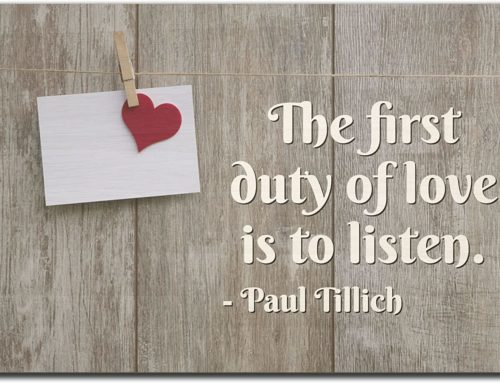“the Bible says so!”
end to an argument for a lot of people [who won’t necessarily give you a book, chapter and verse to make it easier on you but are pretty convinced in their heads that because they think something is true then surely the Bible must say so]
about a week ago i got involved in a ‘discussion’ on the ‘book [the less quotable one] where a pastor had posted a statement made by Bishop Tutu that had something to do with homosexuality and he was disagreeing with the statement… in the comments section i asked for clarification on one point because i was not sure what comment he was making on it and that’s where the fun began…
because a number of his followers jumped in to defend him and the sum total of some of their defense was “the bible says so!”
ah, so it must be true then, if it’s in the bible [which contains stories of polygamy, revenge, smashing tent pegs through peoples heads and so on, so maybe the mere fact that something is mentioned in the bible is not enough for starters – we may need a little more in terms of understanding context, intention of writer, original language it was written in, the story as a whole, the intended audience etc] or maybe not.
when Jesus encourages us to “Love the Lord your God with all your heart and with all your soul and with all your mind.” [Matthew 22.37] perhaps He included the bit about the mind because He wanted us to use it?
the homosexuality argument is a case in point because too often people who have used the bible to back up their stance have used ridiculous out-of-context passages to do so – like picking a verse in deuteronomy that suggests homosexuality is wrong but choosing to ignore all the verses around it that say things like ‘A woman must not wear men’s clothing, nor a man wear women’s clothing, for the Lord your God detests anyone who does this.’ [verse 5], ‘Do not wear clothes of wool and linen woven together.’ [verse 11] and of course, ‘If a man is found sleeping with another man’s wife, both the man who slept with her and the woman must die.’ [verse 22] which clearly they do not fight as vocally for.
another is the ‘prayer of Jabez’ theology where someone took a couple of verses in Chronicles, relating to one specific man’s specific prayer and God’s response to him:
‘Jabez was more honorable than his brothers. His mother had named him Jabez, saying, “I gave birth to him in pain.” Jabez cried out to the God of Israel, “Oh, that you would bless me and enlarge my territory! Let your hand be with me, and keep me from harm so that I will be free from pain.” And God granted his request.’ [1 Chronicles 4.9-10]
this prayer is given in narrative form rather than teaching form and it rides on the back of ‘Jabez was more honorable than his brothers’ which is not the heavily focused on part, and dwell even more on the ‘enlarge my territory’ bit than the ‘keep me from harm so that I will be free from pain’ phrase. and so people started praying this prayer religiously [superstitiously?] and expecting great things from God.
what is interesting is how we can do that to a short prayer one guy prays and yet no-one has come up with a best-selling ‘The Prayer of Job’ much longer prayers] with such winning phrases as, “May the day of my birth perish, and the night that said, ‘A boy is conceived!’ That day—may it turn to darkness; may God above not care about it; may no light shine on it. May gloom and utter darkness claim it once more; may a cloud settle over it; may blackness overwhelm it.’ [Job 3.3-5]
you can add some of Isaiah and Jeremiah’s prayers into the mix as well. what may look like it works for a whole bunch of western christians in relative wealth and comfort [the prayer of Jabez] does not look the same at all if you put it into the mouths of Christ followers in countries where if you are caught following or converting to Jesus you are stoned to death or maybe those living in some of the poorer nations of the world. and it doesn’t work if you hold it up against the teachings of Jesus and Paul and the Bible story as a whole.
that would be like reading that King David slept with another man’s wife and that he was ‘a man after God’s own heart’ and so therefore we can sleep with other men’s wives. absolutely crazy. context is important, how it fits into the bible narrative as a whole, who the intended audience was and what the writer was trying to say.
the bible is written in a variety of different styles of writing and you cannot approach poetry the same way as narrative, or prophecy in the same way as teaching – we would never do that in english class and yet people do it with the bible all the time, because, say it with me, “the Bible says so”
this coupled with the fact that one of the biggest blights in the church today is that people do not know their bibles [largely because they do not read their bibles] and so it has become an even worse understood ‘i think the bible says so’ often coupled with a secret ‘because my pastor/favorite author/blogger said so’ and so our definitive declarative statement of ‘the Bible told me so’ has really been watered down to a sense of ‘this is my guess as to what God thinks about this one and i’m too lazy to really check it out for sure.’
it’s time for the church to love Jesus, and grow a brain! oh wait, God already gave us one of those… just start using it then.
in 1 Thessalonians 5 Paul writes, ‘Be joyful always; pray continually; give thanks in all circumstances, for this is god’s will for you in Christ Jesus. Do not put out the Spirit’s fire; do not treat prophecies with contempt. Test everything. Hold onto the good. Avoid every kind of evil.’ [vs. 16-22]
now it does seem to be referring specifically to prophecies in that example, but i would suggest that principle needs to be true of any handling of God’s word – that of your pastor says it or if you read it in a book or if you feel like that would be God’s stance on a thing, then you need to go and test it – hold on to the good, avoid every kind of evil. test it by taking it back to the bible and seeing if it falls in line with Jesus teaching and with the overarching theme of the biblical narrative. test it by discussing it with people you know who you respect as people who generally love God and understand His Word. test it by inviting the Holy Spirit in your own heart to bear testimony.
if you hold to a stance that violence is wrong, then you need to read through the old testament again and realise that there is a lot of violence happening there [and a lot which is encouraged, ordered by or brought about by God] and so you might need to do some wrestling with some passages and some understanding of the story and with some authors who have written on the subject to figure out what God is saying about that today.
if you hold to the opinion that monogamy is God’s way for us, then you need to struggle through stories of Abraham, Jacob, David and many others and the face that polygamy doesn’t seem to be directly condemned in the Bible and possibly the closest to teaching on the topic is role-specific where deacons/elders are to be the man of one wife.
and so on. there are many things in the bible that if we start looking at them honestly, become areas that need much wrestling, discussion and prayer to determine exactly what God is and isn’t saying and to throw out a quick and simplistic “the Bible says so” often does not do our faith or our integrity or reputation [specifically to non-believers] any good.
God has given us a brain and He wants us to use it. Reading the Bible is a start. Getting to know and understand Scripture is great. And then effectively applying it to today’s world and context is a further great step. Doing that in community so others can help in areas that might be blind spots for you is a winner. Being able to hold different ideas in tension [which may not seem to work together – can God be just and Loving at the same time?] as well as taking the time to hear someone share their explanation on a topic you might have a strongly different opinion on and really see where they are coming from [women in leadership, tattoos, vegetarianism etc] are all ways of really helping you become more sure about what you believe. as well as having the brains to leave a gap for the possibility that ‘i might be wrong on this one despite how strongly i believe it.’
see also Critique vs Criticism unless you came here from reading that and then don’t or you’ll hit this time loop and if you see yourself the whole universe will implode or something…






[…] but choosing to ignore all the verses around it that say … … See the original post: Love Jesus and… grow a brain! « Irresistibly Fish ← Chaplains' Corps Chronicles||Anno Domini 2012||August||Issue No … Saying […]
So Brett – what is your opinion on homosexuality?
anon@mous.com? gonna have to give me more than that… like who are you and what is yours?
@anon…. I find it interesting that your take away from this post was the question over Brettfish’ stance on homosexuality. Not to be inflammatory but this can exactly be the kind of thing that sets an otherwise constructive discussion off course and out of control. Just an honest thought…
Aside from that- great post. It’s so important that we use our heads when it comes to the Bible. It’s about our minds AND our hearts. We need more than just the ‘experience’ of god and his word. As a trimensional being we need to have an understanding in every part of our being. 😀
While @Anon did key on one narrow part of the post (maybe not surprisingly as it is a controversial topic introduced and not explored (not the point I realize but nonetheless) but I would pose that on that topic that is the wrong question. I like the quote “my opinion, while interesting, is irrelevant” and believe it applies here – In the spirit of the whole post, the question is, reading through scripture (and bearing in mind that Jesus is God and so ALL of scripture is inspired by Him), “what is God’s opinion of homosexuality” is the right question about that one part of the post. Probably a topic for a separate post, but it is not about what we want the bible to say, it is about finding out actually what GOD says – opinions are irrelevant.
that is a GREAT clarification… oh that we would start reading the Bible from the perspective of “what do i think God is saying here?” as opposed to what feels good to me or what is society okay with [even christian society]
@Lisa – that is a Great clarification. You’re right on!! I am not looking for mans opinion – but so many leaders waiver from what God says!
@Brett – Fair Enough…but I’d prefer to stay Anon for now. How about this as a better question – in light of what the bible says about homosexuality – do you think that a Christ follower can pursue homosexuality in clear conscience?
anon, i know that something i used to think was such an easy question to answer has become a lot more difficult, not necessarily in terms of the answer i have for it [i like the way you framed the question cos that is a lot easier to answer than some i feel] but when you have a lot of gay friends and you start to have gay friends who are also Christ-following friends then it does become a whole lot more tricky [not because truth necessarily changes but because context changes us] and so instead of diving into everything that plays into what is essentially a loaded question in the church today [whether you mean it or not to be] let me start with the absolutes of what i believe – that God loves gay people just as much as He loves anyone else – not a doubt on that one, the ‘God hates fags’ people have not even come close to having a clue, i don’t know what bible they are misinterpreting… and the second undeniable truth is that i am called to, and gladly do, love gay people as much as i love anyone else… and that for me is not a mission, or something i have to put effort into, or a task from God – the reason i love so many gay people is that so many of them are my friends [yes, i am meant to love the “unlovable” or harder to love ones as well but the ones i actively love, i love because they are my friends and they are amazing people] – so that may not be enough of an answer to the question for you [and many others] but it is the base foundation point of anything and everything else that follows… God and me love gay people. period. [or as we would say, full stop!]
Hey Brett! Cool article man, it’s chellenged me to go read my Bible a bit more deliberately. Unfortunately I need to throw in my two cents in about the homosexuality, becuase it’s been bothering me to the point of explosion.
I definitely agree that God loves sinners and we’re called to love everybody without prejudice. But I get so bummed when people start referring to other people as “gay christians” or even just “gay”. This is very difficult for me to explain, but like, hear me out. If I were to label myself or anyone else as an “(insert sin here) christian”, what does that say about me? The very first thing I’m doing is going “Hey! I sin, and I’ve made it part of my identity, it’s part of my lifestyle.” I know it’s not always the case for the person, but thats what’s going on in my mind when I hear the term. If I were to be characterised by my sins at first impression I would have long ago retreated to some sort of cave.
What’s worse is that some people seem to believe that homosexuality is something that God can not heal, which is rediculous! It’s been made such a sensitive topic by the world that a lot of believers don’t even want to touch it anymore, and are slowly rewriting the rules in their own heads so that they don’t apply to our generation anymore. We have not been given a spirit of fear, and should not allow the devil to have such a foothold in our churches. We have the authority in Christ to adress such things.
Again, I’m not bashing anybody! This is just how I feel (also I haven’t studied my Bible well enough to back anything I say up, thanks Brett :P) Everyone should come to church. I just don’t like the term “gay”, it feels like this inescapable pit where people go to die, and everyones making as if theres no way out.
To come back to the post topic, Lisa is right, we have to find out what God says. And I have to go read my Bible more. Cheers!
ask yourself: was deuteronomy written to south africans living in 2012 or the jews in the desert who has been led out of egypt by God ? i think the answer is pretty obvious. does this apply to me (i.e. must i do these rules in the literal sense?) no. then, how do these rules pertain to me if they were not intended for me ? do these rules have some application in my life ? yes! love God, love neighbour. Jesus came to fulfill/complete the law given in the old testament! Does following this law (deuteronomy) make me saved ? nope (see Galatians where Paul goes to great lengths explaining this). only faith in Jesus can save you.
It is pretty clear that not everything in the bible is written explicitly for me personally but everything has an application to me (many applications).
Constant study of the bible (josh 1:8 ish) is required. and yes, we should be able to be apologetic towards our faith and the bible as it is constantly under attack (e.g. Brett’s example above). If you don’s study the bible and ask the difficult questions and talk about it how are you going to be able to 101% believe in Jesus, God, God’s Word, God’s word and your faith AND convince someone else that you believe all this? We are charged to ‘make disciples of ALL the nations’
I agree fully with Brett…USE YOUR BRAIN !
exactly. good words and the way of putting it clearly… nice. miss you guys, bro!
[…] is very similar to love Jesus and grow a brain because i strongly feel this is something the church needs to be majoring a lot more on and what […]
[…] love Jesus… and grow a brain […]
[…] love Jesus… and grow a brain […]